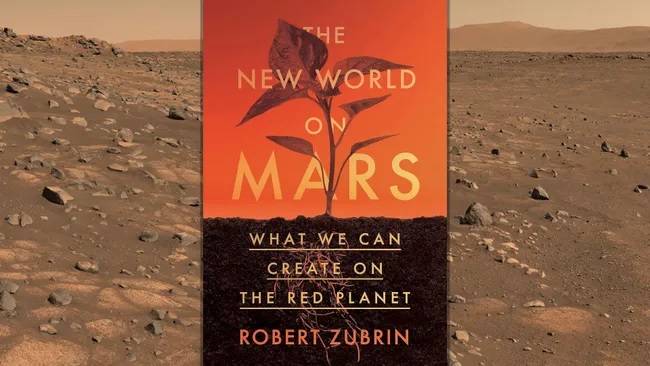
While “The New World on Mars” by Robert Zubrin focuses on the optimistic potential of Martian society, there are challenges mentioned in the book. Here are some potential issues Zubrin explores:
Harsh Environment:
Mars is a cold desert with a thin atmosphere. People will need pressurized habitats, protection from radiation, and ways to produce breathable air, water, and food.
Limited Resources:
Everything a colony needs will have to be brought from Earth initially or developed on Mars using its limited resources. Water ice may be underground, but extracting and utilizing it will be difficult.
Technology Dependence:
Life on Mars will be completely reliant on functioning technology. Any breakdowns in vital systems could be catastrophic.
Psychological Stress:
Isolation, confinement, and the constant dangers of the Martian environment could lead to psychological problems for the colonists.
Overcoming these challenges:
Importance of Social Cohesion:
Zubrin recognizes the need for shared experiences and cultural touchstones to create a strong Martian society. Christianity can play a role in this.
Focus on Individual Rights:
Zubrin emphasizes a Martian government founded on individual rights. This suggests a society tolerant of various religions or even a secular state.
Overall, Zubrin views religion as a potential factor in Martian society.
Author and Background
Zubrin draws upon the latest scientific research and engineering insights to paint a vivid picture of our future Martian civilization.
From Fantasy to Reality:
A quarter-century ago, setting foot on Mars seemed like a fantastical dream. However, manned exploration of the Red Planet is not only possible but inevitable today. Zubrin asserts that colonization of Mars is not a matter of “if” but “when.”
Interplanetary Travel:
Companies like SpaceX, Blue Origin, and Virgin Galactic are actively developing fleets of space vehicles to make interplanetary travel as affordable as historical Old-World voyages to America. These advancements will pave the way for human settlement on Mars.
Utilizing Martian Resources:
Armed with our knowledge of Mars, we will tackle the challenges that await us. Zubrin envisions populous Martian city-states capable of producing air, water, food, power, and more. These cities will utilize local resources, such as real estate sales, to build airtight homes that protect against cosmic radiation. Imagine fish-farm aquariums positioned overhead, allowing sunlight while blocking cosmic rays.
Martian Economy and Government:
Zubrin outlines a Martian economy that pays for necessary imports and generates income from various enterprises. He predicts a government “of the people, by the people, for the people,” with inalienable individual rights that overcome traditional forms of oppression.
Mars will need talented immigrants to thrive.
Pressure Cooker for Invention:
With all these elements, Zubrin’s Mars becomes a crucible for innovation.
The benefits will extend to Mars, Earth, and beyond.
